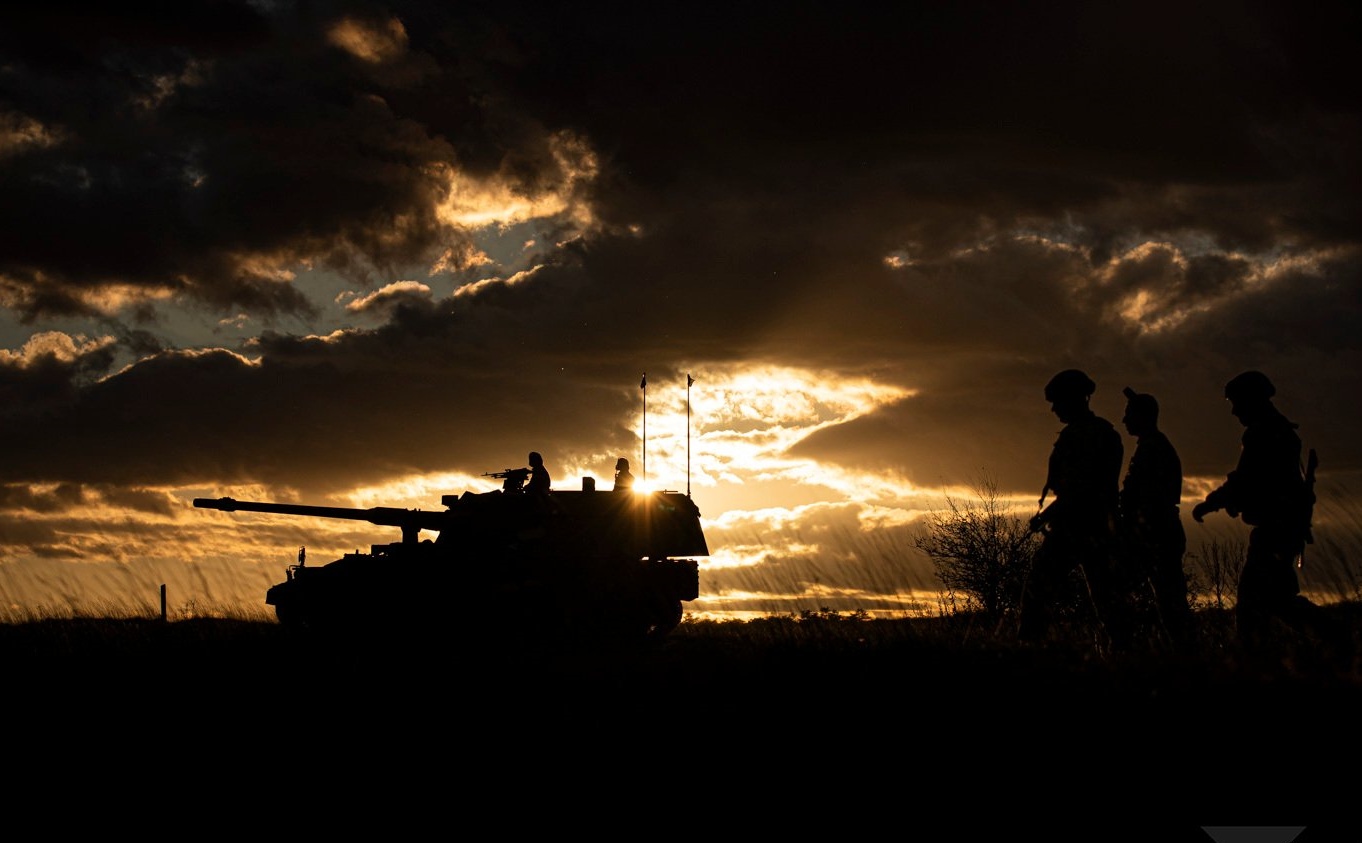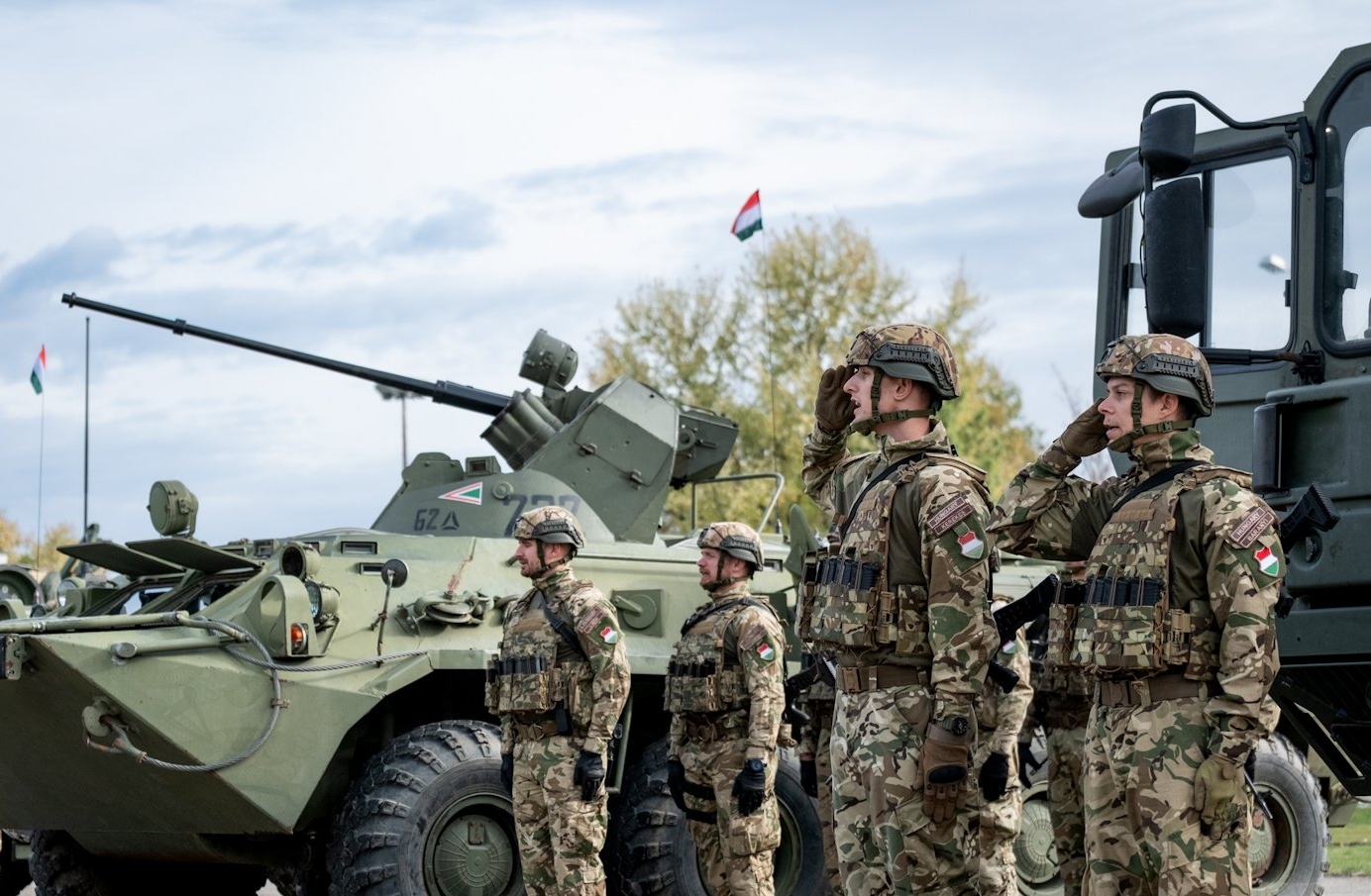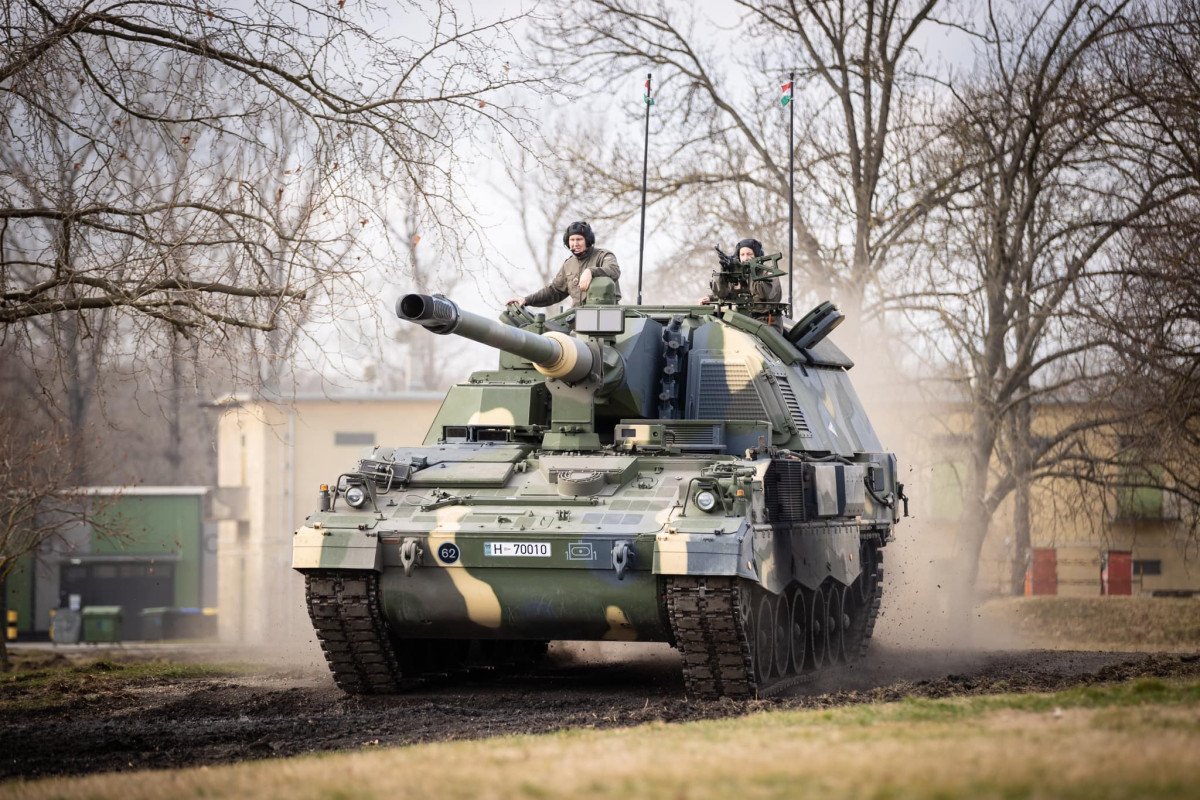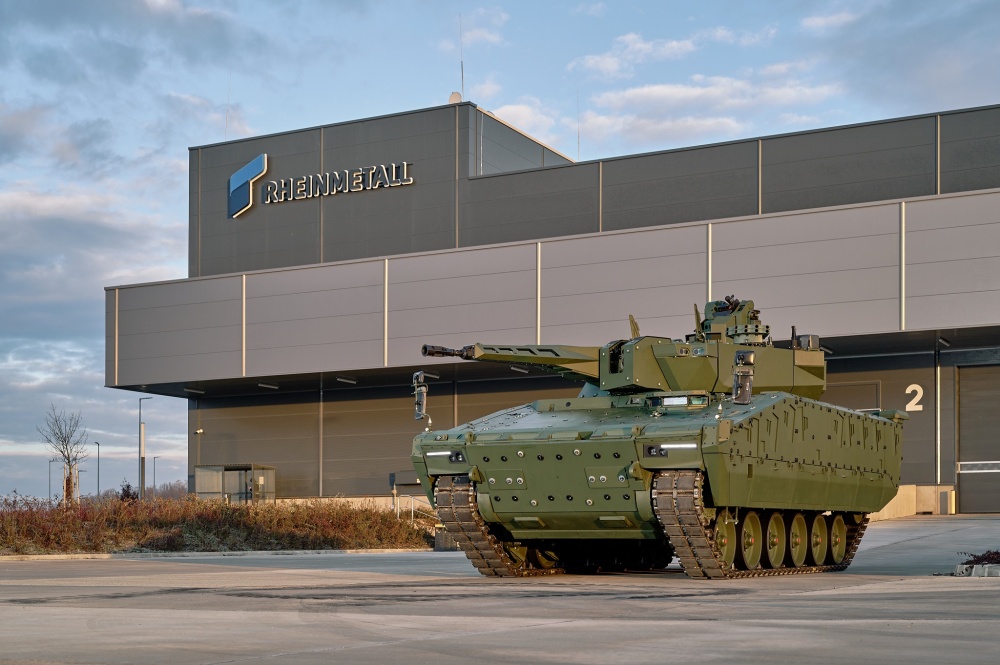
The exercise is taking place with the participation of Hungary, Italy, Turkey, Croatia, and the United States.Continue reading

“We have taken a huge step forward in force generation since 2016, but it is not enough. (…) Today we spend more than 2 percent of GDP on defense, hence political will and financial resources are available to transform our armed forces,” stressed Gábor Böröndi, Chief of the Defense Staff, during the Budapest Security Dialogue conference, writes Honvedelem.hu.
On the early challenges of force generation, General Gábor Böröndi recalled that the establishment of a heavy infantry brigade and an air defense system was set as a NATO goal. The process has started, and now,
the Hungarian Defense Forces have Leopard 2A4 and 2A7 tanks, PzH-2000 self-propelled howitzers, and new Lynx fighting vehicles, among others, while new and more modern equipment continues to arrive.

The PzH-2000. Photo via honvedelem.hu
“This is necessary because the world around us, and Europe, has changed radically. There is the war between Russia and Ukraine, a sense of instability in the Western Balkans, and illegal migration flows from Africa. In other words, we have many challenges to meet,” highlighted the Chief of the Defense Staff.
“We are conducting exercises, many of our soldiers have served and are serving around the world – yet it is a huge challenge,” noted the General. He added: “This is what Exercise Adaptive Hussars 23 (large-scale and complex exercise, involving close to 6,000 personnel and 47 military organizations) was all about, when we deployed troops to the north of the country and worked with the civilian sector. “We take the goal of protecting the people of our country and being a good NATO ally seriously,” he emphasized.
The Chief of the Hungarian Defense Staff explained that the military development program aims to build a defense industrial complex beyond force generation, not only to purchase and deploy equipment,
but also to enter the industry through defense industrial enterprises.
“This is why, like the development of the automotive industry, our country has started building factories and set up defense industrial companies, with the expertise of Hungarian engineers and their answers to problems,” he added.

Rheinmetall plant in Zalaegerszeg (western Hungary). Photo via X/SPARTANAT
During the panel discussion, the current security situation in the Western Balkans, including Bosnia and Herzegovina, was discussed by Major General László Sticz, Commander of the 23-nation EUFOR ALTHEA military mission. He stressed that he sees positive developments in the Western Balkans, as almost all countries want to join the European Union and NATO. The accession agenda is moving forward, bringing stability to the region.
He explained that in Bosnia and Herzegovina, the state structure is very complex and it is difficult to run such a country. “What I can say is that the political leaders of the country know what to do and how to do it, and if they persevere, they can achieve their goals. I would like to underline that there are two basic principles that not only the military but also the political leaders have to follow. One is cooperation and the other is unity. Without these two guiding principles, I do not believe that military organizations or states and countries can be successful,” Major General László Sticz underlined, adding that the majority of the population is satisfied with the presence of EUFOR.
Via Honvedelem.hu; Featured image via Honvedelem.hu